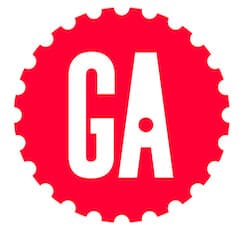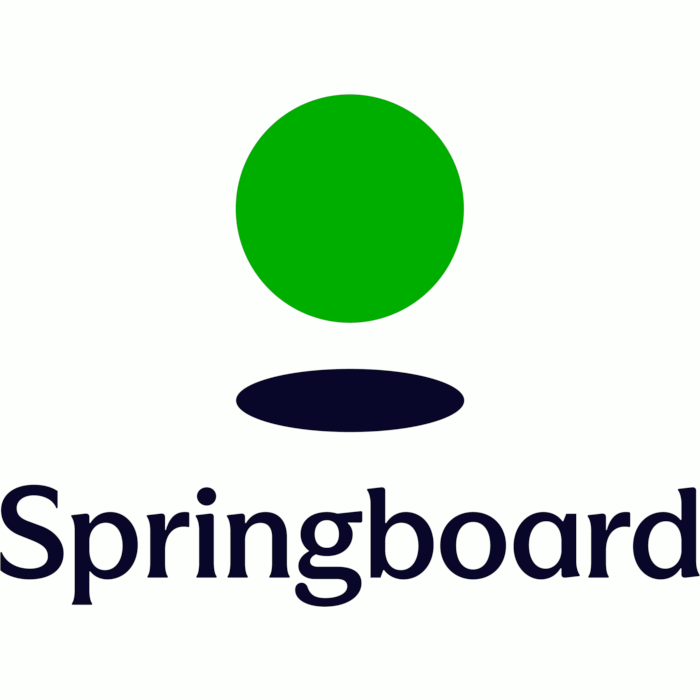About The Software Guild
Location:
The Software Guild is an online, fast-paced apprenticeship program. Choose from a full-time, 12-week bootcamp, or part-time online badge program, to learn either .NET/C# or Java. These two stacks are stable, proven, and in the highest demand in the enterprise.... Read More
Do you represent this school? Suggest edits.
Courses
.NET Web Developer Bootcamp
Java Web Developer Bootcamp
ONLINE .NET Web Developer Badge Program
ONLINE Java Web Developer Badge Program
The Software Guild Reviews
Average Ratings (All Programs)
NULL
8/27/2013
"NULL"
I am an apprentice from the Software Craftsmanship Guild’s first public class, a 12-week program in Akron, Ohio that started in June. At the Guild, I was taught the .NET framework (C#, ASP.NET MVC4, SQL Server Management Studio, Dapper, Entity Framework,... Read More
It should be noted that I am a college student, and was not a part of the job placement program, so my perspective is going to be a little different than some of the other apprentices. I made a recent decision to minor in Applications of Computing even though I had a very limited background in programming, so I knew I had to supplement my studies this summer before returning to college. Furthermore, web development is not taught in school, so I thought this would be a great opportunity to learn something new!
Originally, I had applied and been accepted to 4 other bootcamps in North America. I was willing to go where there would be an excellent learning opportunity for me and I was not afraid to relocate to find it (I lived in San Francisco at the time). After weighing the pros and cons, I chose the Guild for two reasons:
1) Eric (the lead instructor and founder) was very approachable during the application process, which was very different from how impersonal the process was for other bootcamps. I felt that he genuinely wanted me to be his apprentice. He convinced me that learning the .NET framework would ultimately advance my personal goals of learning software to interface with hardware.
2) As a member of the first class, the cost of tuition was heavily subsidized and I didn’t mind being a guinea pig. The cost of living is also substantially lower in the middle of Ohio than it would be in any of the other major cities that a bootcamp is offered. To me, this was just a really good deal.
Almost right away, I knew I had made the right decision to join the Guild. Our class had seven people, so it was a very intimate environment conducive to learning. Eric had us writing basic programs using loops and if statements before the end of Day 1, and I was starting on a Tic Tac Toe console app by Day 3. Although formal class hours were between 9 am and 4 pm, Eric was always available via Skype to answer questions and help me debug in the evenings. When I had to miss a couple days to go out of town for responsibilities with my startup, Eric made sure I was caught up.
Of course, there were struggles too. We moved very quickly through the course material, which made it stressful to try and keep up. Some days, it felt like Eric was so busy teaching us something new that he didn’t even notice that we didn’t understand the previous concept. There were big differences between the skill levels of all the students, which made it difficult to gauge how we were doing.
As soon as some of us gave feedback to Eric, he changed his approach immediately. He started giving us more time to work on our capstone projects at our own pace. He became more aware of our individual abilities and gave us more one-on-one mentorship. I am confident that the hiccups in curriculum flow will have been resolved by the time the September class comes in. Eric has learned a great deal from teaching us, and I’m almost envious that the next class gets to reap all the benefits.
In order to push myself to continue to improve, I held myself accountable to finishing the homework by tracking my progress on a spreadsheet and supplementing my learning with online videos and tutorials. I programmed for 8-9 hours a day on my own after the morning lectures and class exercises, and rarely took weekends off. It also helped that living in the middle of Ohio where I had no friends helped me stay focussed. (It should be noted this is definitely not sustainable in the long run!)
The atmosphere of the Guild is more relaxed than some of the other cutthroat, competitive bootcamps. (I have heard stories from friends.) I would say that the reason I was able to improve so quickly was because of my own initiative, but it only happened because of the structure and support provided to us. My advice to future apprentices: You can’t expect to have your hand held. Eric will guide you, but he won’t push you unless you push yourself.
In my opinion, the Software Craftsmanship Guild is great for anyone:
• Interested in getting a job or career change (.NET statistics)
• Looking to build their own MVP web apps
• Who wants to upgrade their skills
• Needing a smaller, less-pressured environment for learning
The Software Craftsmanship Guild is not a good fit for:
• Silicon Valley hipsters who specifically need to know Ruby on Rails for some reason :)
The Guild will now be charging all students full-tuition (on a payment plan depending on which track you will be in). It is a program that – if I had to do it all over again – I would pay full price for.
If this post sounds excessively promotional, it’s because the Guild had a profound impact on my life. I didn’t know I would like programming so much, let alone be good at it. The Guild helped me discover so much about myself – personally and professionally. I really felt like I was part of a family here, and I can definitely say this was one of the best summers of my life. I would not have gotten this much individualized attention if I had gone to one of the larger bootcamps. (That being said, I’m considering attending one of the larger bootcamps just for fun to get a different experience in the future.)
At the Guild, we have been taught skills that allow us to become language agnostic developers in the future. I could now self-study another programming language because I understand some of the basic concepts. .NET or Ruby… It really doesn’t matter in the end.
Of course, this is only the beginning and I have much more to learn. Eric reminds us often that we are a part of the Guild for life. I can reach out to him for mentorship anytime, and after coming up with a plan, I feel confident in my journey to continue learning software development.
Do you represent this school? Respond to a review.








